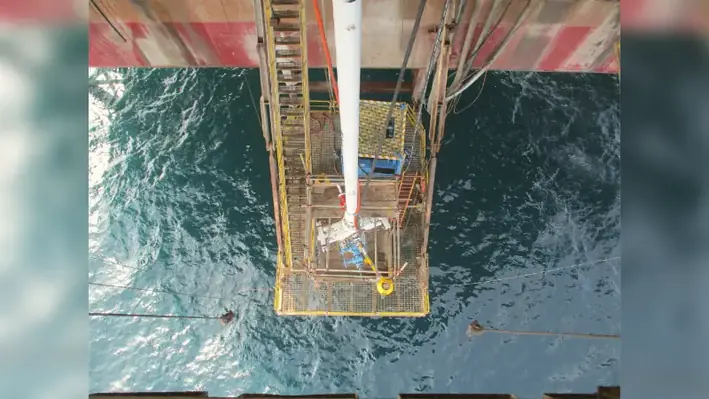
 The products and services provider for offshore developments has secured a multi-year contract worth seven figures with a global offshore services company to support intervention and abandonment activities offshore Spain.
The products and services provider for offshore developments has secured a multi-year contract worth seven figures with a global offshore services company to support intervention and abandonment activities offshore Spain.
Under the agreement Aquaterra will deliver a subsea well access solution across 11 wells. The campaign will be executed from a semi-submersible vessel, where Aquaterra will supply a 7-3/8” ID, 5,000 psi rated intervention riser system. The complete riser-based solution will integrate with the customer’s subsea pressure control system to enable efficient intervention and abandonment activities.
Aquaterra Energy CEO, George Morrison, said, “Securing this multi-year contract is a significant milestone for Aquaterra Energy. Well intervention and abandonment is increasingly the defining challenge for many mature offshore basins and we have invested in building the team, capability and technology required to make these campaigns a success as our customers navigate complex late-life field operations.”
Ben Cannell, Innovation Director at Aquaterra, commented, “Well access to support intervention and abandonment remains a key focus for us as we continue to expand our capability and presence in this market. This project is a strong example of collaboration in action, bringing together our riser-based well access solution and OEM AQC-CW connector technology to deliver a practical, integrated system that supports safe, efficient and reliable offshore operations throughout complex abandonment campaigns.”
According to Westwood, plug and abandonment is expected to account for almost half of total decommissioning expenditure in the UK North Sea, with similar pressures of ageing assets moving into the abandonment phase being witnessed in Spain.

 The integrated subsurface, wells and facilities specialist has acquired Applied Petroleum Technology AS (APT), a geoscience company in a move which strengthens Elemental’s existing subsurface capabilities.
The integrated subsurface, wells and facilities specialist has acquired Applied Petroleum Technology AS (APT), a geoscience company in a move which strengthens Elemental’s existing subsurface capabilities.
APT provides basin modelling and subsurface analysis to support well exploration, production and plug and abandonment decisions. The acquisition helps Elemental create an integrated team spanning geoscience, reservoir engineering, geochemistry and petroleum engineering.
The acquisition meets rising demand for deeper subsurface insights, with APT’s laboratory-based geochemical analysis adding a critical layer of subsurface insight to Elemental’s offering alongside traditional geoscience and reservoir engineering workflows.
APT will also bring established digital tools to Elemental’s portfolio, including Girasol which is used for wellsite gas interpretation and P&A decision-making.
Mike Adams, CEO of Elemental Energies, said, “As subsurface decisions become more complex across mature assets, decommissioning and CCS, we are continuing to invest in specialist capabilities that help our clients make more informed decisions. Bringing APT into Elemental Energies expands out subsurface and geochemistry expertise, creates new opportunities for our teams and strengthens our ability to support clients at every stage of the asset life cycle.”
Helge Nyrønning, CEO of APT, commented, “APT has always focused on delivering high-quality geochemical insight to support critical subsurface decisions. Becoming part of Elemental Energies is an exciting next step for our business and our people. It gives us the scale, reach and multidisciplinary environment to grow our capabilities, work more closely with clients we already know well, and apply our geochemistry expertise within fully integrated subsurface and wells team, particularly form our strong base in Norway.”
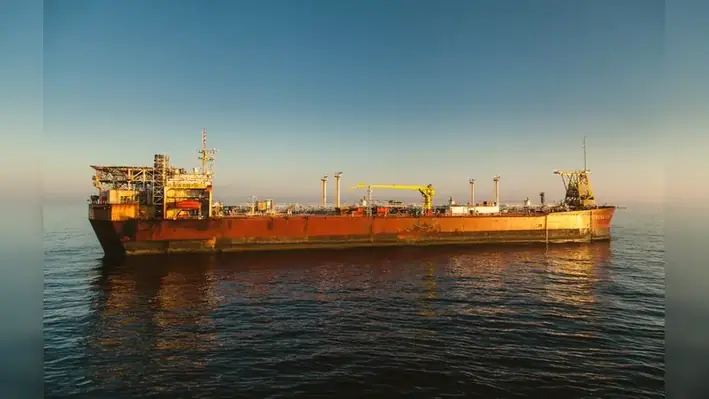
 AF Offshore Decom has signed a contract with Ithaca Energy for decommissioning work in the UK sector of the North Sea
AF Offshore Decom has signed a contract with Ithaca Energy for decommissioning work in the UK sector of the North Sea
The contract scope includes the engineering receipt, cleaning, dismantling and recycling of a FSU weighing approximately 24,000 metric tons.
Lars Myhre Hjelmeset, EVP Offshore at AF Gruppen, said, “We are very pleased to have been awarded a second major contract by Ithaca Energy following the award of the FPF-1 asset in December 2025. As a result of the awards, AF Environmental Base Vats will receive close to 50,000 tons of floating production and storage facilities from Ithaca energy in 2026.
“The two units will, after initial preparations, be loaded onto our yard in a combined gloat over and load in operation, consistent with earlier similar projects at AFEBV. The units will be cleaned, dismantled and thereafter the steel will be repurposed, upcycled and recycled creating several circular material solutions for the agriculture, construction and civil industries in the Nordic region.”
The contract has been valued in the range of NOK350-400mn (approximately US$36-41mn).
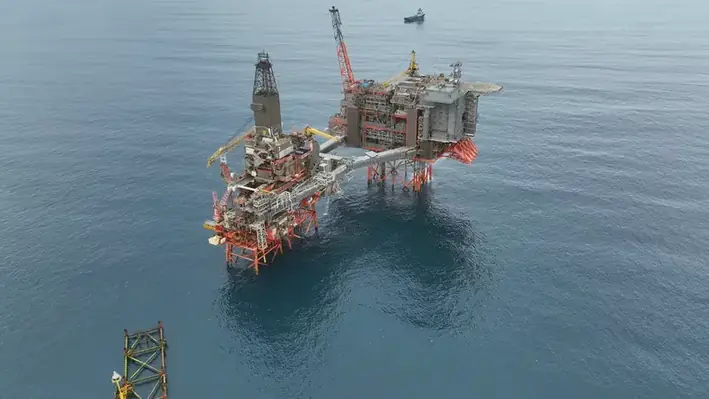

Aker Solutions has secured a five-year framework agreement to provide maintenance, modification, and operations (MMO) services in the Yggdrasil area, with options to extend for up to two additional four-year periods from 1 March 2026. The work will form part of the next-generation MMO alliance covering Valhall, Fenris, Ula, EIGA (Edvard Grieg and Ivar Aasen), Skarv, Alvheim, and Yggdrasil.
The alliance aims to set new benchmarks in project execution and delivery, embracing advanced technology and AI-driven methods to boost productivity, reduce costs, and shorten project lead times. Greater organisational integration and a performance-focused commercial model are central to the approach.
Kjetel Digre, Chief Executive Officer at Aker Solutions, said: “This contract marks a new chapter for Aker Solutions. We are proud to serve as the MMO provider for the Yggdrasil Area, including three topsides, Hugin A, Hugin B, and Munin. It is an area that will set a new benchmark for remote operations and low-manned and unmanned production platforms.”
The agreement includes a significant share of local deliveries, supporting Norwegian industry through engineering and project management in Stavanger, Sandnessjøen, and Mumbai, and fabrication at Aker Solutions’ yards in Egersund and Sandnessjøen. Offshore employees will also benefit from the programme.
The award will be recorded as order intake in the Life Cycle segment in the first quarter of 2026, reflecting expected work during the five-year fixed period.
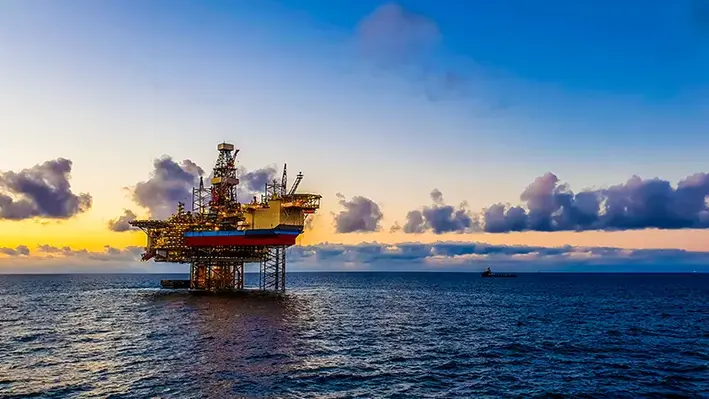
 Energy services provider Expro has unveiled a new high-debris single shear and seal ball valve system, designed to provide enhanced flexibility, functionality, and safety for subsea well access in the global oil and gas sector
Energy services provider Expro has unveiled a new high-debris single shear and seal ball valve system, designed to provide enhanced flexibility, functionality, and safety for subsea well access in the global oil and gas sector
By replacing the traditional requirement for two valves with just one, the system transforms subsea well access operations, reducing risk and complexity while supporting more cost-effective subsea intervention technologies.
Tested and validated according to API Std 17G, the system is the first fully NACE MR0175-compliant fail-close, bi-directional high-debris ball valve capable of shearing and sealing on wire and coiled tubing.
Expro’s new equipment can be applied in both riser and open water environments across the full well lifecycle – from exploration and appraisal to completion intervention, plug and abandonment, and decommissioning.
The system has already been deployed for a new in-riser completions project in the Gulf of America and installed in an open water system for a North Sea plug and abandonment campaign. It provides shear and post-shear sealing for gas and liquids on slickline, braided electrical cable, and coiled tubing, delivering bi-directional sealing even after pump-through operations.
It is also integrated into Expro’s lightweight open water intervention riser system. By achieving shear and seal in a single valve, the system allows more efficient operations in open water applications.
The modular design enables isolation and disconnection from the well, while its compact size and flexibility align with the industry’s move toward smaller blowout preventer stacks and streamlined supply chain management. The fail-close configuration reduces emissions risk and provides an additional well safety barrier. Expro’s integrated approach gives users confidence and simplifies operations by replacing a two-valve system with just one.
The system offers superior high-debris flexibility, handling solids up to 15% ingress qualification size, making it suitable for a wide range of subsea well lifecycle challenges.
Daniel More, Vice President Subsea Well Access at Expro, said:
“In introducing this system, Expro now offers the subsea engineering market a distinctive new solution that provides the ultimate integrated shear and seal on coiled tubing and wire using just a single valve. It cuts through operational complexity. Simple to use, flexible, with a compact design for smaller BOP stack sizes, this is the latest in fail-safe technology developed by the experts of valve technology and systems integration.
“When there’s no room for error, the system is designed to provide the assurance of an independent well safety barrier, combined with the surety and confidence that comes from Expro’s integration experience and expertise at the ‘whole system’ level. It’s the latest example of Expro’s engineering excellence and deep understanding of customer needs to move our industry forward.”
The system is available in Expro’s landing string assembly equipment offering, and can be deployed in-riser as a single valve, a single valve with a latch mechanism, within a subsea test tree, or within an open water intervention riser system.
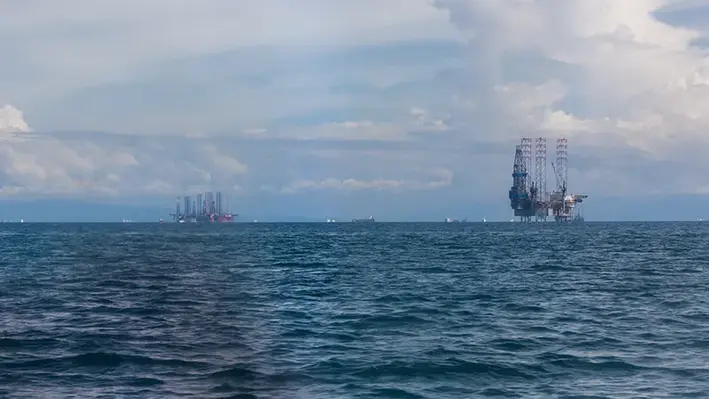

OKEA, alongside its partners, has announced a petroleum discovery at the 'Knockando Fensfjord' prospect in the North Sea.
The well was drilled from the Brage installation as part of a development well for oil (31/4-A-15 D) within production licence 055, according to the Norwegian Offshore Directorate.
Preliminary estimates suggest that, if the discovery contains oil, it could add between 0.5 and 1.5 million standard cubic metres (Sm³) of recoverable oil equivalent (o.e.) to Brage’s resources. If the find is gas, estimated volumes range from 0.4 to 0.9 million Sm³ o.e.
Well 31/4-A-15 D recently began production from the 31/4-A-1 B 'Talisker' discovery on 11 January 2026. The licence holders are now evaluating potential development options for the Knockando Fensfjord discovery.
Production licence 055 was awarded in Norway’s fourth licensing round on the Norwegian continental shelf (NCS) in 1978. The Brage field was proven in 1980, with the plan for development and operation (PDO) approved by the Storting in 1990. Several new discoveries have been made in the Brage area in recent years, including “Talisker Cook/Statfjord” (31/4-A-15 B) and “Prince” (31/4-A-23 G), both confirmed in 2025.
The current licensees in production licence 055 include OKEA (operator), Lime Petroleum, DNO, Petrolia NOCO, and M Vest Energy.
The development well 31/4-A-15 D targeted the lower Fensfjord Formation of Late Jurassic age en route to the “Talisker” production target in the Middle Jurassic Brent Group. The well confirmed a 38.5-metre hydrocarbon column across multiple sandstone layers with moderate to good reservoir quality. The petroleum-water contact was not encountered.
The well reached measured and vertical depths of 10,009 metres and 2,309 metres below sea level, respectively, before being terminated in the Oseberg Formation of the Middle Jurassic. Geological and reservoir data were collected throughout the discovery interval.
This latest find adds to OKEA and its partners’ ongoing efforts to optimise resource recovery in the Brage area, further strengthening the field’s contribution to Norway’s oil production.
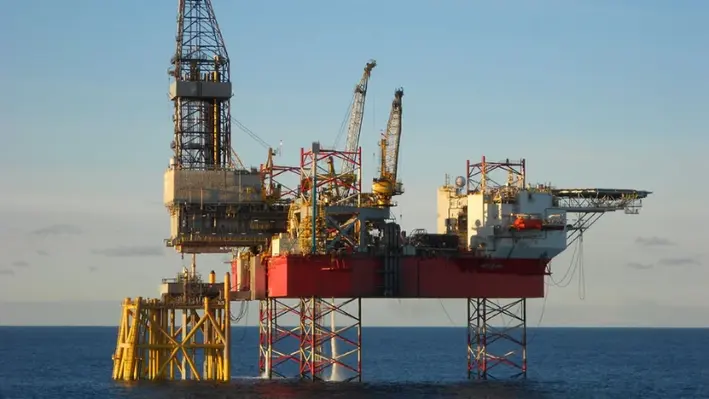

Seadrill Limited has provided an update on its contracting activities in Europe and beyond, highlighting a new agreement for its West Elara rig on the Norwegian Continental Shelf.
In Norway, the West Elara has secured an accommodation contract with Equinor AS, expected to commence in the third quarter of 2026 and continue into the fourth quarter of 2027. The firm contract value is US$78mn, with three priced options of three months each. Prior to this fixture, Seadrill reached a mutual agreement with the current contract holder to make the West Elara available. “This update to the rig’s schedule results in a net increase in total contract value of US$23mn,” the company noted.
Seadrill’s president and chief executive officer, Simon Johnson, said, “We are excited to confirm these important contracts with several of our long-standing customers. … In Norway, the West Elara’s contract with Equinor represents a harmonious solution to a potential gap in the rig’s operations, reaffirming that Seadrill’s collaborative approach with customers continues to create value for all stakeholders.”
Outside Europe, the ultra-deepwater drillship West Capella in Malaysia has secured a contract with an undisclosed operator. The well-based programme is expected to start in the second quarter of 2026, with an estimated duration of 440 days, plus priced options for three additional wells. The total firm-term contract value is approximately US$157mn, including a US$5mn mobilisation fee and excluding additional services.
Meanwhile, the West Carina in Brazil has had its current contract extended through April 2026.
Johnson added, “The reactivation of the West Capella materially enhances Seadrill’s earnings potential in a region with reinvigorated demand for offshore drilling.”
Seadrill’s latest contracts underscore its focus on strengthening European operations while maintaining a global presence across key offshore markets. In Norway, the West Elara deal highlights the company’s ability to optimise rig utilisation in collaboration with major operators, ensuring minimal downtime and maximising the value of its fleet.
The accommodation contract comes amid growing offshore activity in the Norwegian Continental Shelf, where operators are seeking flexible solutions to support extended field development and maintenance projects. Seadrill’s approach reflects a broader trend in the offshore drilling sector, combining operational adaptability with long-term strategic partnerships.
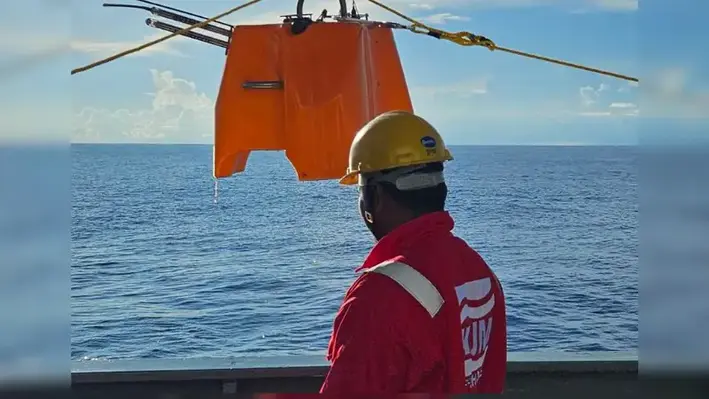
 Technology solutions company, Rosenxt Group, has acquired K.U.M Umwelt- und Meerestechnik Kiel GmbH (K.U.M), strengthening its position in the growing subsea technology market and expands its portfolio with specialised solutions for deep-sea monitoring and data acquisition.
Technology solutions company, Rosenxt Group, has acquired K.U.M Umwelt- und Meerestechnik Kiel GmbH (K.U.M), strengthening its position in the growing subsea technology market and expands its portfolio with specialised solutions for deep-sea monitoring and data acquisition.
K.U.M boasts a vast portfolio of customised subsea monitoring systems, ocean-bottom seismometers, seabed instrument carriers, and other advanced deep-sea solutions. The company has more than 400 offshore expeditions and a broad customer base across 40 countries. Now, as part of Rosenxt Group, K.U.M will gain access to a broader international market and be able to scale its subsea solutions more rapidly.
Through the acquisition, Rosenxt will significantly expand its presence in the specialised subsea domain: K.U.M brings more than 20 years of experience in developing complete subsea systems. The acquisition supports Rosenxt’s strategy on integrating sensing, robotics, digitalisation, materials technology and deep environmental expertise to develop robust solutions that create value across subsea, offshore and upstream applications.
Hermann Rosen, Chairman of the Board at Rosenxt, said, “The integration of K.U.M is a consistent contribution to our responsibility to shape the future of critical infrastructure in a resilient and technologically excellent way. K.U.M brings decades of subsea engineering expertise and precise data acquisition to the table – a strong addition to our group. We think in the long term – beyond market cycles – and are laying the foundations today for the solutions of tomorrow. Rosenxt is staying true to its course and sending a clear signal about its ambitious development in the subsea market.”
CEO of K.U.M, Onno Bliss, commented, “Joining the Rosenxt Group enables K.U.M to further scale our subsea data acquisition and instrumentation solutions and benefit from the group’s broader technology ecosystem. Our shared values – innovation, precision, integrity – make this partnership an excellent fit.”
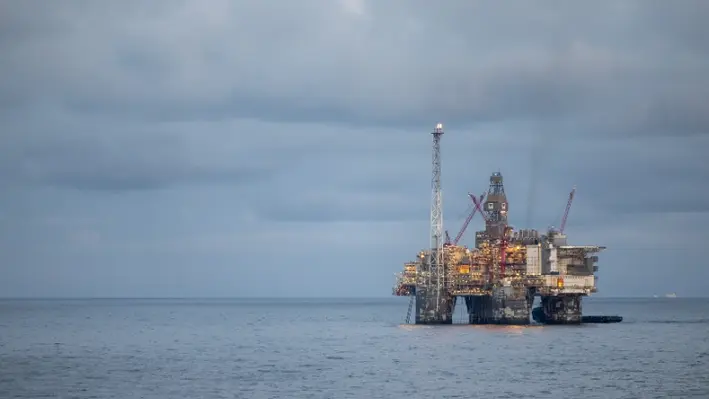

Equinor has been granted approval by the Norwegian Offshore Directorate to drill a new exploration well in the Norwegian part of the North Sea, strengthening ongoing activity in one of the country’s mature offshore areas.
The permit relates to the 34/8-A-37 H wildcat well within production licence 120, a licence originally awarded on 23 August 1985 and currently valid through to 2034. Equinor operates the licence with a 53.2% interest. The remaining stakes are held by Petoro, which owns 30%, ConocoPhillips Skandinavia with 9.1%, and Repsol Norge with 7.7%.
Drilling of the well is planned to take place from the Visund field, with operations expected to commence in January 2026. The Visund field is situated in the northern North Sea, northeast of the Gullfaks field, in waters measuring around 335 m in depth.
Discovered in 1986, Visund moved into the development phase following approval of its plan for development and operation in 1996. First oil was achieved three years later, in 1999, and the field has remained an active production hub since then.
The development comprises the Visund A platform, a semi-submersible installation that combines accommodation, drilling and processing functions. This surface infrastructure is supported by a subsea production facility located in the northern part of the field, enabling continued operations in the area.
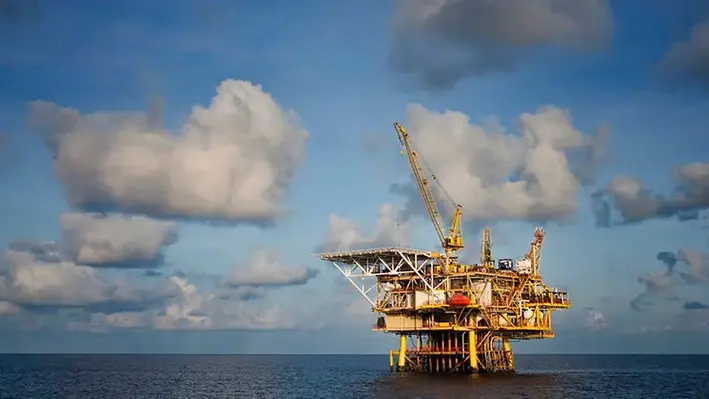
 Equinor has awarded a new set of long-term framework agreements to seven supplier companies, with a combined value of about NOK 100 billion, reinforcing the foundation for safe, efficient and competitive operations across its offshore installations and onshore plants.
Equinor has awarded a new set of long-term framework agreements to seven supplier companies, with a combined value of about NOK 100 billion, reinforcing the foundation for safe, efficient and competitive operations across its offshore installations and onshore plants.
In total, twelve framework agreements have been signed covering maintenance and modification services. These contracts will take effect in the first half of 2026 and run for five years, with options to extend by a further three and two years. Together, they represent an estimated annual value of around NOK 10 billion and are expected to generate long-term stability and significant knock-on benefits for the Norwegian supplier industry nationwide.
“The Norwegian continental shelf will remain the backbone for Equinor for a long time. Our ambition is to maintain a high production level and predictable energy deliveries to Europe towards 2035. At the same time, the shelf is entering a mature phase that will require new solutions. To succeed, we must, together with the supplier industry, find new ways of working that strengthen our competitiveness. These agreements facilitate long-term collaboration and continuous improvement on core tasks at Equinor’s offshore installations and onshore facilities in Norway,” said Kjetil Hove, executive vice president for the Norwegian continental shelf at Equinor.
“These are strategically important agreements, and collectively among the largest Equinor has awarded. The agreements will ensure long-term activity and value creation across Norway, with job creation estimated at around 4,000 man-years at the suppliers. The goal is close, long-term, and predictable cooperation that strengthens the culture for safety and security and our shared competitiveness. Together, we will work safer and smarter, and scale up the use of new technology,” added Jannicke Nilsson, chief procurement officer at Equinor.
The framework agreements support Equinor’s objective of sustaining production of around 1.2 million barrels of oil equivalent per day on the Norwegian continental shelf, broadly in line with 2020 levels, through to 2035. To achieve this, the company plans annual investments of approximately NOK 60–70 billion in increased recovery and new field developments. This includes drilling about 250 exploration wells and around 600 wells aimed at improving recovery, carrying out roughly 300 well interventions each year, and executing close to 2,500 modification projects.
Equinor also intends to mature and develop more than 75 subsea projects that can be tied back to existing infrastructure, while continuing efforts to cut its own greenhouse gas emissions by nearly 50% by 2030 compared with 2015 levels. Alongside maintaining stable and reliable energy supplies to Europe, the company will invest heavily in maintenance and upgrades to enhance safety, ensure high operational regularity, and reduce climate and environmental impacts.
The agreements span seven suppliers in total, including three companies that are new entrants to Equinor’s maintenance and modification portfolio.
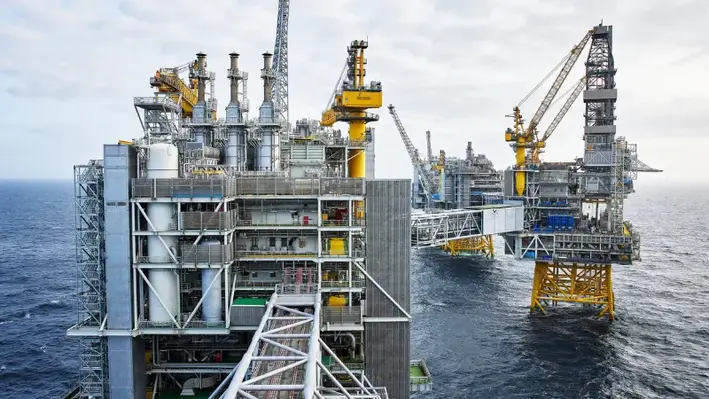
 Aker Solutions has been awarded multiple five-year frame agreements with Equinor for maintenance and modification services in the Norwegian Continental Shelf and onshore Norway.
Aker Solutions has been awarded multiple five-year frame agreements with Equinor for maintenance and modification services in the Norwegian Continental Shelf and onshore Norway.
Installations will be formally assigned after the contracts have been signed. The intended scope of work involves maintenance and modification services for offshore assets including Johan Sverdrup, Troll, Kristin, Åsgard, Heidrun, Njord, Grane, Kvitebjørn and Valemon.
Additionally, Aker will provide its services for the Øygarden onshore plants.
Chief Executive Officer of Aker Solutions, Kjetel Digre, said, “Under the current frame agreement, we are boosting productivity, cutting costs and shortening project lead times by fundamentally changing how we work. This is the start of a larger transformation, as Aker Solutions intends to build on this progress and aims to take our collaboration with Equinor to the next level.
“We have set ambitious goals and are proud to offer the capabilities of a highly competent and experienced workforce with an adaptive mindset. This contract award is a strong testament to the quality and consistency of the services that our teams have delivered over many years.”
The five-year agreement provides Equinor with the flexibility to extend the contract for two periods of three and two years.
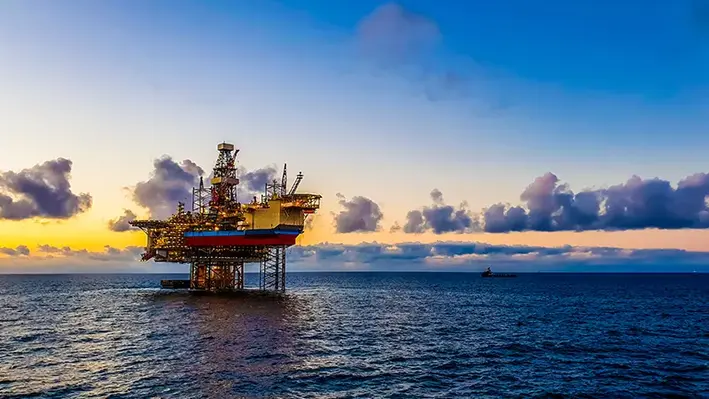
 Halliburton has introduced the HyperSteer MX directional drill bit, the industry’s first shankless, matrix-body directional bit designed to enhance durability while delivering superior directional control.
Halliburton has introduced the HyperSteer MX directional drill bit, the industry’s first shankless, matrix-body directional bit designed to enhance durability while delivering superior directional control.
Engineered for demanding conditions, the bit enables longer drilling intervals with fewer trips, while withstanding erosion and abrasion in high-flow, abrasive environments.
The launch represents a significant advancement in drilling technology. By integrating the accurate steering capability associated with HyperSteer directional drill bits with the strength of a matrix body, the new design allows operators to drill for extended periods in harsh formations. This supports efforts to reduce overall well time while maintaining high levels of directional performance.
According to Amr Hassan, vice president, Drill Bits and Services at Halliburton, the HyperSteer MX directional drill bits leverage advanced matrix materials to combat erosion and abrasion, prolong bit life in abrasive, high-flow settings, and enhance operational efficiency and reliability.
The bit offers precise directional control across vertical, curve, and lateral sections, helping operators optimize drilling performance while reducing well construction time and costs. By enabling longer runs, the design cuts down on trips, lowers the risk of unplanned events, and preserves directional accuracy even in the most challenging environments.
HyperSteer MX directional drill bits further expand the HyperSteer portfolio and underscore Halliburton’s continued focus on developing engineered solutions that enhance asset value.
Page 1 of 36
Copyright © 2026 Offshore Network